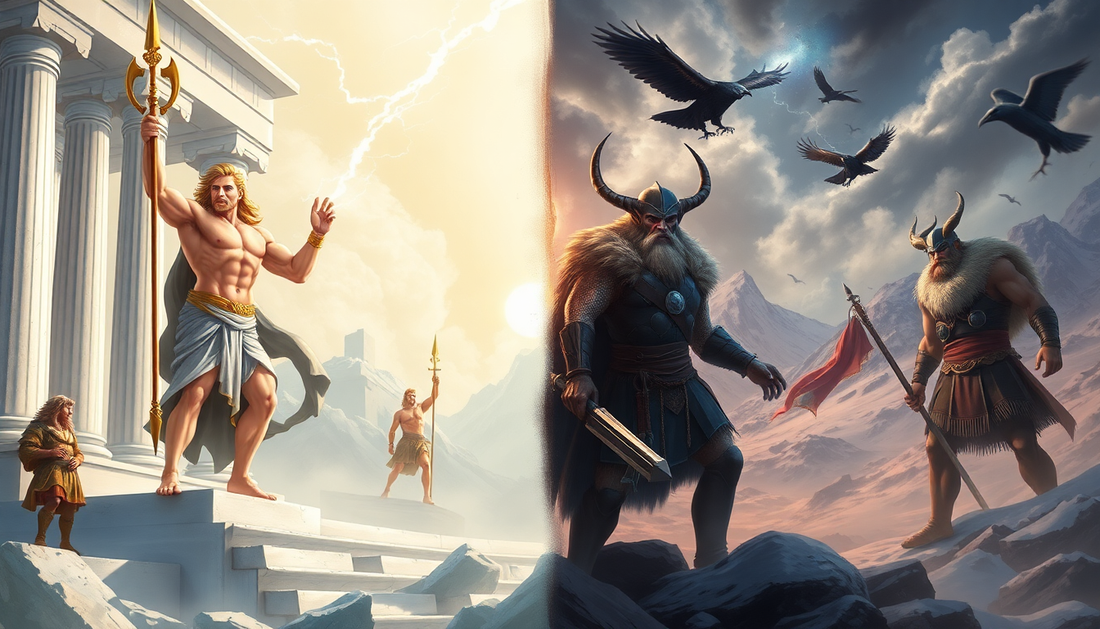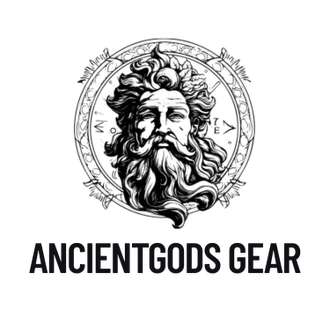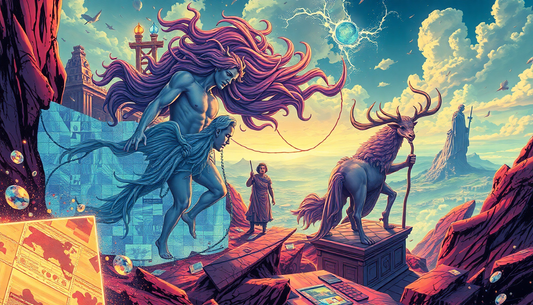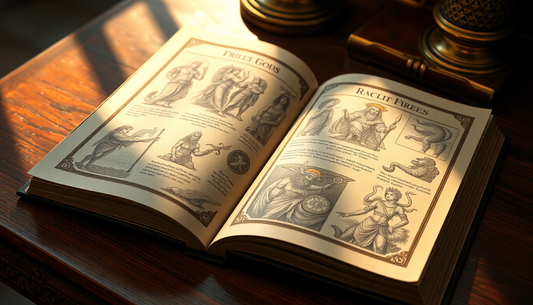
Greek vs Norse Mythology: Key Differences in Culture & Style
In the vast tapestry of human history, few cultural phenomena have captivated the imagination of scholars and enthusiasts alike as the rich mythologies of ancient civilizations. Among the most prominent and enduring of these are the mythologies of ancient Greece and ancient Scandinavia, commonly referred to as Greek and Norse mythology, respectively. While both share a common foundation in the human desire to understand the world around us, these two distinct belief systems present striking differences in their cultural underpinnings, narrative styles, and the pantheons of deities that populate their realms.
The Cultural Backdrop
At the heart of any mythology lies the cultural context that gave rise to it. Greek mythology, rooted in the ancient Hellenic civilization, reflects the values, societal structures, and philosophical leanings of the Greek people. The Greeks were renowned for their emphasis on reason, logic, and the pursuit of knowledge, as evidenced by the prominence of thinkers such as Socrates, Plato, and Aristotle. This intellectual tradition is mirrored in the Greek pantheon, where the gods are often depicted as anthropomorphic beings with distinct personalities, flaws, and complex relationships.
In contrast, Norse mythology, which originated in the rugged landscapes of Scandinavia, is heavily influenced by the harsh realities of the environment and the warrior culture that thrived in those regions. The Norse people were renowned for their seafaring prowess, their skill in battle, and their reverence for the natural world. This is reflected in the Norse pantheon, where the gods are often associated with specific natural phenomena, such as the thunder god Thor or the sea god Njördr.
Narrative Styles and Themes
The narratives of Greek and Norse mythology also exhibit distinct differences in their storytelling approaches and the themes they explore. Greek myths are often characterized by their intricate plots, complex character development, and a focus on the human condition. The stories frequently delve into themes of love, betrayal, hubris, and the consequences of one's actions. The Greek gods are often depicted as flawed and relatable beings, whose interactions with mortals serve to illuminate the human experience.
In contrast, Norse mythology is renowned for its epic scope, its focus on the cyclical nature of existence, and its exploration of the concepts of fate and the inevitable decline of the world. The Norse narratives are often more straightforward and action-oriented, with a greater emphasis on the heroic deeds of mortal and divine figures. The Norse gods are often portrayed as more primal and elemental in nature, embodying the raw power and unpredictability of the natural world.
The Pantheons
The pantheons of Greek and Norse mythology are also strikingly different in their composition and the roles played by the various deities. The Greek pantheon is dominated by the Twelve Olympians, a group of powerful gods and goddesses who reside atop Mount Olympus. This pantheon includes familiar figures such as Zeus, the king of the gods; Hera, the goddess of marriage; and Athena, the goddess of wisdom and warfare. The Greek gods are often depicted as having distinct personalities, complex relationships, and a wide range of powers and domains.
In contrast, the Norse pantheon is more fluid and decentralized, with a greater emphasis on the interplay between the various gods and the forces of nature. The Norse pantheon includes figures such as Odin, the all-father and god of wisdom; Thor, the god of thunder and protector of humanity; and Loki, the trickster god whose actions often drive the narrative forward. The Norse gods are more closely tied to the natural world and the cycles of life, death, and rebirth that are central to their belief system.
Conclusion
The mythologies of ancient Greece and ancient Scandinavia are two of the most enduring and influential belief systems in human history. While both share a common foundation in the human desire to understand the world around us, the cultural, narrative, and pantheon-related differences between these two mythologies are striking and profound. By exploring these distinctions, we gain a deeper appreciation for the rich tapestry of human civilization and the diverse ways in which our ancestors sought to make sense of the mysteries of the universe.
As we delve into the captivating realms of Greek and Norse mythology, we are reminded of the power of storytelling to shape our understanding of the world and our place within it. Whether we are drawn to the intricate plots and complex characters of the Greek myths or the epic scope and primal themes of the Norse narratives, these ancient belief systems continue to captivate and inspire us, offering a window into the diverse and fascinating cultures that have shaped the human experience.


